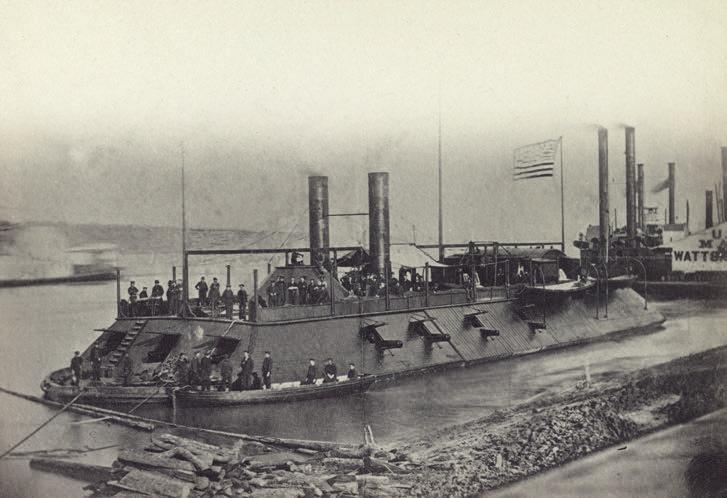
Someone with imagination and the right kind of boat. In 1842, James B. Eads proved that he had both the imagination and the know-how to design such a boat.
Eads was born in 1820 in Indiana. His family moved around a lot as his father tried to earn a living. When the Eads family moved to St. Louis, Missouri, in 1833, James stopped attending school and found jobs to help support his family. In his free time, he read books about civil engineering and machinery. By the time he was 19, he had a job as a cargo clerk on the Knickerbocker, a river steamboat.
An accident on the steamboat got Eads thinking about salvage. He started with a flat-decked barge holding a derrick. A 40-gallon wooden barrel served as a makeshift diving bell. Lowered into the Mississippi River by the derrick, the diving bell allowed Eads to walk on the river's bottom. He spent hundreds of hours exploring. He observed that where the river ran fast, it scoured and deepened its channel. Where the river slowed, it deposited sediment that collected into sandbars.
By 1856, Eads was the respected captain of a fleet of salvage boats on the river. And his firsthand knowledge of the river became invaluable to him as he created monumental works of engineering that forever altered the Mississippi.
But the Civil War (1861-1865) initially put such projects on hold. The federal government asked Eads to build river gunboats for the Union. Eads built more than 30 ironclads, constantly incorporating improvements. The ironclads helped the Union win important victories on the Mississippi River and along the Gulf of Mexico.
Bu hikaye Cobblestone American History Magazine for Kids dergisinin April 2023 sayısından alınmıştır.
Start your 7-day Magzter GOLD free trial to access thousands of curated premium stories, and 9,000+ magazines and newspapers.
Already a subscriber ? Giriş Yap
Bu hikaye Cobblestone American History Magazine for Kids dergisinin April 2023 sayısından alınmıştır.
Start your 7-day Magzter GOLD free trial to access thousands of curated premium stories, and 9,000+ magazines and newspapers.
Already a subscriber? Giriş Yap
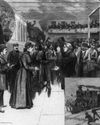
nellie Bly Journalist
nellie Bly's first newspaper articles appeared in print when she was just 20 years old.

Arabella Mansfield -Lawyer
Arabella Mansfield started out life as Belle Babb (1846-1911). She grew up in a Midwest family that valued education. In 1850, her father left to search for gold in California. He died in a tunnel accident a few years later.

Sarah Josepha Hale Editor
Long before Vogue or Glamour caught women's attention, Godey's Lady's Book introduced the latest fashions.

Louise Blanchard Bethune - Architect
Louise Blanchard Bethune (1856-1915) showed early promise in math. Lucky for her, her father was the principal and a mathematics teacher in a school in Waterloo, New York. Instead of going to school, Louise's father taught her at home until she was 11 years old. She also discovered a skill for planning houses. It developed into a lifelong interest in architecture and a place in history as the first professional female architect in the United States.
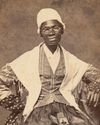
Sojourner Truth Speaker
There was a time when slavery wastes abolished the institution over a number of decades. New York abolished slavery in 1827. Isabella Baumfree (c. 1797-1883) was born enslaved in Hurley, New York. When she was nine, she was taken from her parents and sold. She then was sold several more times. Some of her owners were cruel and abused her. During that time, she had several children.
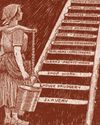
Getting Started
In this editorial cartoon, a young 19th-century woman must overcome the obstacle of carrying a heavy burden while climbing a multirung ladder before she can achieve \"Equal Suffrage.\"
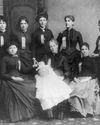
Leonora M. Barry - Investigator
When Leonora M. Barry (1849-1923) was a young girl, her family left Ireland to escape a famine. They settled in New York. Barry became a teacher. In 1872, she married a fellow Irish immigrant. At that time, married women were not allowed to work. So, Barry stayed home to raise their three children.

Finding a New Path
For many Americans, this month's mystery hero represents the ultimate modern trailblazer. She is recognized by just her first name.
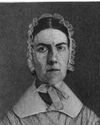
The Grimké Sisters Abolitionists
Every night, Dinah was supposed to brush the E hair of her mistress, Sarah Moore Grimké (1792-1873). But one night, 12-year-old Sarah stopped Dinah. She wanted to help Dinah instead. They had to be quiet so they wouldn't get caught. It was 1804 in Charleston, South Carolina. The Grimkés were among Charleston's major slaveholding families. Strict laws regulated the behavior of both master and enslaved people.
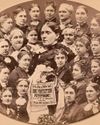
Frances Willard Leader
During Frances Willard's lifetime (1839-1898), she was the best-known woman in America: She headed the largest women's organization in the worldthe Woman's Christian Temperance Union (WCTU). In that role, her abilities shone as a social activist, a dynamic speaker, and a brilliant organizer. She educated women on how to run meetings, write petitions, give speeches, and lobby state and federal legislators.